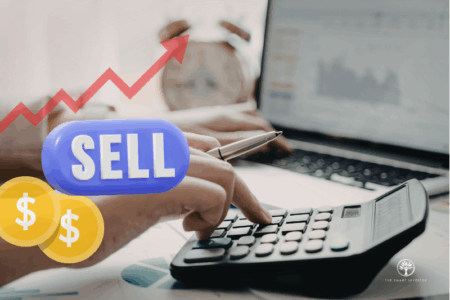The Trump’s administration’s recent tariff announcements have sent shockwaves through global stock markets.
Markets are right to be concerned about the potential impact of these tariffs on world trade and the world’s economy as a whole.
At the same time, such negative events, which have punctuated history, also provide great opportunities for buying stocks of enduring companies at cheaper prices.
Did the word “cheaper” jump out at you?
Bear in mind – that’s not the whole story.
While stock prices are definitely a factor, there are other key considerations if you want to achieve significant long-term returns from your investments.
Focus on great enduring businesses
Like a cheap product that breaks easily, a company that can’t survive a crisis offers no lasting benefit even if its stock price is low.
Thus, it is important to focus on businesses that can stay resilient amid the turmoil and emerge stronger from it.
How do you find such companies?
A company’s track record is a good starting point.
For starters, take a look at how the company fared in previous crises.
Doing so should provide you an idea of how it stays resilient during a downturn.
Here’s the key distinction: while many businesses will be negatively impacted during a downturn, quality businesses typically remain profitable due to their higher margins and inherent competitive advantages.
Additionally, they will have robust balance sheets, which allow them not only to weather the tough times, but also to make opportunistic moves, such as acquiring competitors to strengthen their market positions.
Alphabet Inc (NASDAQ: GOOGL) exemplifies this.
The company’s powerful network effect, resulting from its vast user base, and its diverse portfolio of innovative technologies, gives Alphabet a significant competitive edge.
Moreover, with US$85 billion in cash at the end of 2024, Alphabet comfortably funded its recent acquisition of Wiz Inc, a cloud security platform.
This purchase enhances their Google Cloud security capabilities and further solidifies their market presence.
While a strong track record is a valuable indicator, we must also look ahead.
Therefore, we should subjectively assess whether these companies will continue to thrive five to 10 years from now.
Keeping the long-term view is key.
Time is of the essence
A tasty and flavourful soup takes hours to simmer, allowing the ingredients to meld and deepen their essence.
Like a well-rounded soup, we must allow time to work its magic on our chosen companies.
It takes years, not months, before companies can see their strategies reach fruition.
The passage of time allows innovations to gestate, market share to expand, and competitive advantages to solidify.
Your patience is even more critical if you want to take advantage of the opportunity presented by the current crisis.
In the history of US stocks markets, the length of bear markets and their subsequent recovery range from months to years.
Given the unpredictable timeline of market recoveries, gradually deploying capital you can commit for the next three to five years is the most prudent course of action.
Get Smart: Good returns, and not just about multibaggers
This discussion above naturally leads you to a crucial question: even with this patient approach and focus on quality, how can you be certain that these companies will be successful eventually?
Indeed, you can’t.
However, by investing in durable businesses at favourable valuations and letting time work its wonder, you can significantly enhance the probability of identifying substantial winners within your portfolio.
Moreover, while the thrill of having multibaggers in your portfolio is undeniable, it’s crucial to remember that your primary investment goal is long-term, targeted returns, rather than exclusively pursuing these outsized gains.
These exceptional performers can certainly contribute to your overall goal, but this is not the only path.
In fact, an overly narrow focus on chasing multibaggers could potentially hinder the attainment of your broader investment objectives.
Consider this: an investor who purchased 100 shares of DBS Group (SGX: D05) at around S$18 per share during the Covid-19 pandemic, and simply held on, would have more than doubled his or her investment, even amid the recent market meltdown.
Now, contrast this with another investor who, in addition to the initial purchase, subsequently bought another 100 shares at S$30 per share, raising his or her average cost to approximately S$24.
While his or her return would be just above 60%, he or she would have a higher absolute return.
Which investor’s outcome aligns more closely with your own investment aspirations?
For me, it’s clear: unwavering commitment to enduring businesses through the thick and thin.
Generative AI is reshaping the stock market, but not in the way most investors think. It’s not just about which companies are using AI. It’s about how they’re using it to unlock new revenue, dominate their markets, and quietly reshape the business world. Our latest FREE report “How GenAI is Reshaping the Stock Market” breaks the hype down, so you can invest with greater clarity and confidence. Click here to download your copy today.
Follow us on Facebook and Telegram for the latest investing news and analyses!
Disclosure: Chan Kin Chuah owns shares of Alphabet and DBS.





